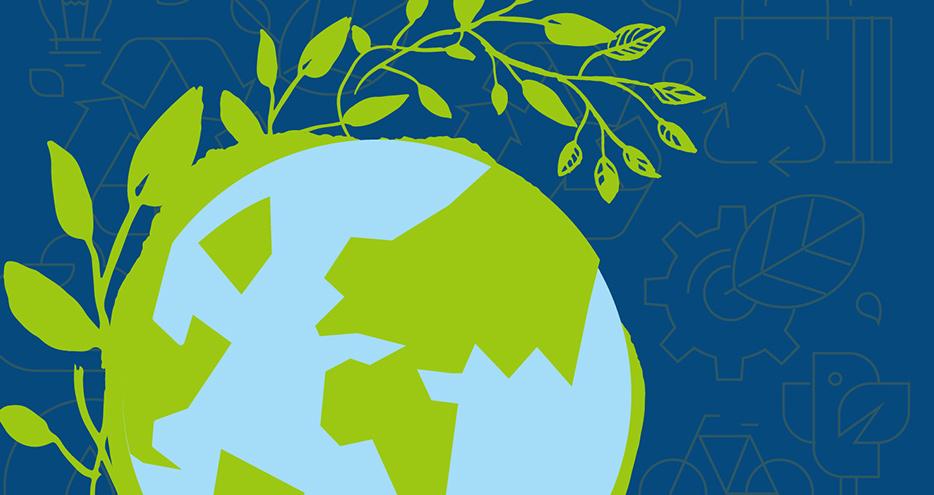3 Questions to Ponder for Your 2030 Strategy

Edwina McKechnie | BSR
Charlotte Bancilhon | BSR
For years, 2020 was a distant concept, the end point for business goals and timelines. With many sustainability strategies and goals expiring in 2020, it’s now time for companies to think about their sustainability priorities for the next 10 years.
At Sustainable Brands Paris, we discussed the dynamics shaping post-2020 strategies with representatives from Avery Dennison, evian, Fortitude Partners and Mastercard.
The landscape for sustainable business is rapidly changing, as evidenced by the accelerating energy transition, highly disruptive technologies such as artificial intelligence, new business models, increasing geopolitical volatility, nascent climate disruption and new expectations from stakeholders.
At BSR, our view is that the next phase of work requires building resilient business strategies with sustainability at their core. Gone are the days of piecemeal, siloed approaches and ticking off the quick wins. Now is the time to reset the trajectory recognizing the interwoven reality of business, society and the consumer.
"Most big businesses have been working on sustainability with reasonable success for the last 10 to 15 years, but we have been picking the low-hanging fruit,” a BSR member once told us. “The next phase will be much more difficult. It is about what you buy and what you sell; it goes into the heart of your commercial operations and investment decisions."
Lessons Learned
This brings a huge opportunity to reflect on lessons learned from the past decade of sustainability management: what has worked well, what we have achieved and what we need to do to drive ambition for changing the way we meet consumer needs while creating long-term value for business and society.
In this context, we need to reflect on the following three questions as we work with member companies to develop strategies for 2030.
1. What could our world look like in 10 years, and how do we ensure the relevance of our priorities in 2030?
Companies cannot plan for 2030 without considering how different the world will be 10 years from now. While we cannot anticipate all the disruptions and innovations that will unfold in the next decade, we can leverage futures thinking and scenario planning to prepare long-term sustainable business strategies.
Futures thinking and scenario planning offer structured methodologies to identify signals of change on the horizon, explore possible future scenarios and ensure your 2030 strategy is fit for the changing world. Scenario planning is not a prediction of the future but a way to expand our field of vision, challenge assumptions about the present and future and improve our capacity to adapt to and steer change. Importantly, it helps to understand how your business would look in a plausible new environment.
Explore BSR’s research into the key drivers of change affecting sustainable business in the Doing Business in 2030 report and theorize the impact of four plausible scenarios on your business and consumers.
2. How are consumer needs and wants evolving, and how do brands partner with consumers and others to enable more sustainable lifestyles?
One BSR member company told us the most important thing for sustainability is to ensure pathways to growth for businesses: “Consumers will use words other than sustainability such as wellbeing and technology obsolescence. You should not put out new sustainable products just to win nice awards but because consumers need and want these products.”
Truly sustainable and resilient businesses are those that integrate their commitment to achieving the Sustainable Development Goals (SDGs) into core business strategy. BSR member companies understand the “need to focus primarily on how solving major sustainability challenges create new revenue opportunities for the company. This means integrating the SDGs and sustainability into business planning.”
More and more, companies see the value sustainable efforts deliver to their consumers and, conversely, the demand from consumers for goods and services that reflect a contribution to solving major societal challenges.
In the past, sustainability strategies have focused on doing business as usual, with fewer negative impacts. But, as another BSR member company explains, “products, services and technologies are more important than processes and procedures, but we in the sustainable business field are too focused on process. This misses the key strategic link with market-based needs.”
3. Which business approaches can work to drive deeper internal integration and business value to get the entire company on board with a 2030 strategy?
According to the State of Sustainable Business 2018, consumer and customer demand is the second most powerful driver for sustainability efforts after reputation. However, just 34 percent of companies state that their sustainability team works effectively with marketing, 29 percent with research and development (R&D) and 28 percent with product development.
Integrating sustainability into brand strategies and innovation requires new approaches for teams that may not have worked closely before. Sustainability teams can give marketing and product development the right tools to enable sustainability to drive brand purpose and innovation.
Our partner, Fortitude Partners, outlines some tangible ways to work with your marketing department such as developing a toolkit to enable brand managers to turn what is often an abstract sustainability strategy into consumer-led brand strategies.
One BSR member explains how they have “baked sustainability attributes into the product development stage-gate process. Innovation teams are part of our sustainability governance. We’ve also partnered with an accelerator to incubate entrepreneurs that will generate ideas that will benefit us."
Eyes on 2030
Concrete tools and methodologies exist that can help companies build sustainability strategies that create business and stakeholder value during the next decade.
Sustainability teams will need to develop new competencies to be fully empowered to drive the design of meaningful 2030 sustainability strategies and goals such as the ability to identify value creation opportunities, drive internal change and identify future factors.
Want to have UPS sustainability news and thought leadership delivered to your inbox? Sign Up for UPS Horizons Now.

